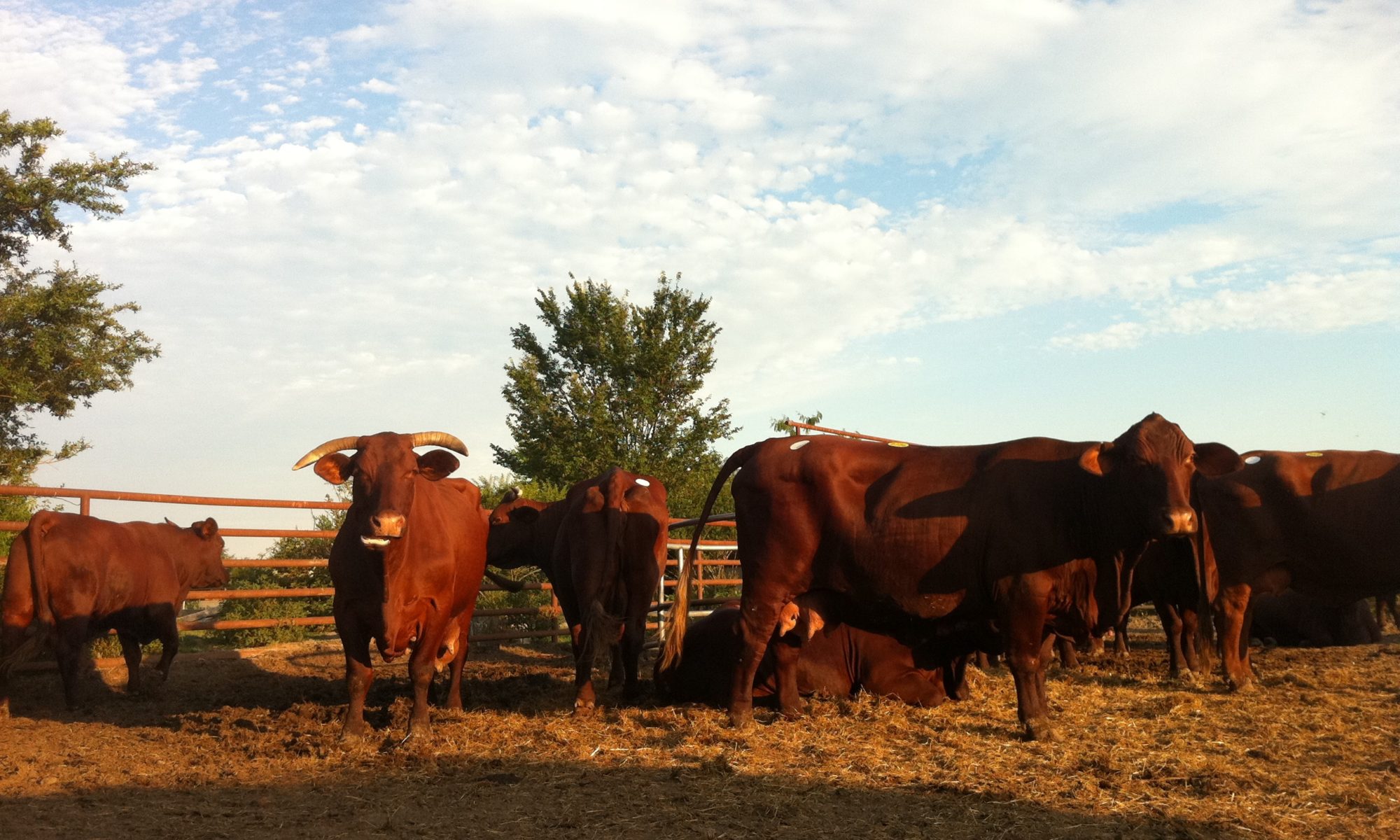

Dr. Lew Strickland
Associate Professor and Extension Livestock Veterinarian
Department of Animal Science
P: 865-974-3150
The Tennessee Department of Agriculture’s Animal Health Division works to protect animal health through import requirements, movement restrictions, and livestock traceability. Movement of livestock introduces the potential spread of infectious diseases and other health threats. Several diseases have no vaccine or preventative options, and others have no effective treatments. Therefore, veterinary inspection and testing prior to movement is vital to prevent spread of disease.
Inspection and proper identification are essential for livestock traceability. If an animal is transported to a different geographical area and later displays clinical signs of a reportable disease, the prior location can be traced to inform health officials of the potential of an outbreak in that area.
An overview of necessary requirements for livestock are summarized below:
Beef Cattle and Bison
All sexually intact cattle over 18 months of age moving across state lines must be officially identified and be accompanied by an approved document with official ID numbers of the animals being moved. Cattle and bison of any age used for rodeo, recreational events, shows and exhibitions must be officially identified. Additional testing for diseases such as Tuberculosis, Brucellosis, and Trichomoniasis may be required by the destination state.
Dairy Cattle
All male dairy cattle born after March 11, 2013, and sexually intact dairy cattle of all ages moving across state lines must be officially identified and accompanied by an approved document with official ID numbers of the animals being moved. The only exception are dairy steers which must be officially identified, but the official ID numbers do not have to be individually listed on the approved movement document. Additional testing for diseases such as Tuberculosis and Brucellosis may be required by the destination state.
Slaughter Cattle
Slaughter cattle that will be slaughtered within 72 hours may move directly to a slaughter facility with an approved USDA back tag.
Approved Tagging Sites
Facilities designated as “Approved Tagging Sites” may receive cattle requiring identification and apply official identification tags. The tagging site may charge for this service.
Official identification for cattle moving interstate includes:
1. USDA approved 840 RFID ear tags
2. USDA approved orange vaccination ear tags
3. USDA approved silver metal ear tags referred to as NUES tags
NUES = National Uniform Ear Tagging System
RFID = Radio-Frequency Identification
Other official tags are available for purchase by USDA approved manufacturers. A list of approved tag manufacturers for official tags can be found at www.aphis.usda.gov/traceabilitv. All livestock must be accompanied by a Certificate of Veterinary Inspection (CVI) and/or other federally and state approved movement documents.
Horses
For interstate movements, most States require that horses be individually identified and accompanied by a Certificate of Veterinary Inspection (CVI). Specific requirements, such as proof of negative Equine Infectious Anemia testing (Coggins), or other restrictions of movement based on regional or national disease conditions such as neurological Equine Herpes Virus, Equine Piroplasmosis, or Contagious Equine Metritis, are dictated by each importing state.
Swine
For interstate movements, all swine must be individually identified with official identification unless the swine are kept as a group. Additional testing for diseases such as Brucellosis or Pseudorabies may be required by the destination state. Examples of official identification are:
- Official ear tags
- USDA back tags only when used on swine moving in slaughter channels
- Official swine tattoos (issued and authorized by State or Federal Animal Health Officials) on swine moving in slaughter channels
- Ear notching if the ear notching has been recorded in the book of record of a purebred registry association
- Tattoos on the ear or inner flank of any swine if the tattoos have been recorded in the book of record of a swine registry association
- For slaughter swine and feeder swine, an ear tag or tattoo bearing the Premises Identification Number assigned by the State Animal Health Official to the premises where the swine originated
Sheep and Goats
For interstate movements, all sheep and goats must be individually identified with official identification. Official identification can include:
- USDA scrapie tags
- Official RFID “840” sheep and goat tags
- Legible registration tattoo when the animal is accompanied by a copy of the registration certificate in the current owner’s name
- Electronic implantable devices (EID) when the animal is accompanied by a reader and copy of the registration certificate that includes the EID number and is in the current owner’s name
Certificate of Veterinary Inspection (CVI)
A CVI must show individual animal identification numbers that include the official ear tag number(s), the breed association registration tattoo or brand numbers, the breed association registration number, and any other official individual identification on each animal to be moved.
A flock ID may be recorded if it meets the requirements for official individual animal identification. Copies of the registration papers can be attached to the CVI in lieu of recording all registration information on the certificate.
All CVI’s must also include the following:
- Number of animals covered by the certificate.
- Purpose for which the animals are to be moved.
- Points of origin and destination.
- The consignor and the consignee.
- A statement by the issuing accredited or State or Federal veterinarian that the animals were not exhibiting clinical signs associated with scrapie at the time of examination or language that assures the animals have no history of clinical signs or exposure to contagious or infectious diseases.
Prior to shipping livestock, owners or their veterinarians should contact the destination state to inquire as to entry requirement regulations. Information on interstate movement requirements can be found at InterstateLivestock.com. The Tennessee State Veterinarian’s office is available to producers and veterinarians with questions on requirements to enter Tennessee and assistance with completion of a CVI. If you have any questions, please contact the State Veterinarian’s office at 615-837-5120 or animal.health@tn.gov or Lew Strickland at lstrick5@utk.edu
References
USDA APHIS | Interstate Movement of Cattle, Horses, Swine, Sheep and Goats
USDA Animal Disease Traceability Rule ADT_summary_species.pdf (usda.gov)
Tennessee Department of Agriculture Livestock Traceability – Animal Health Information – Animals – Businesses – Agriculture – TN.gov